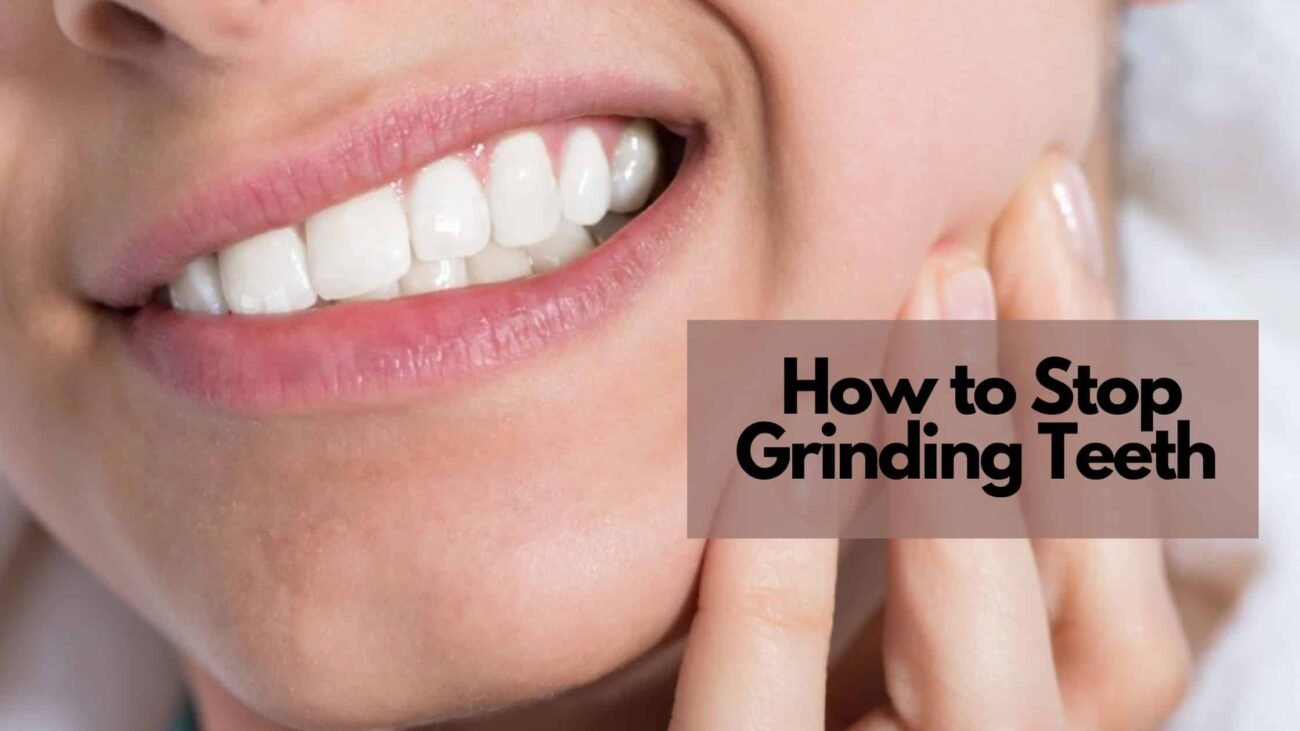What Is CBD? 7 Steps To Understand Its Benefits For Wellness

Most people are curious about CBD, a compound derived from the cannabis plant, but may not fully understand its benefits and applications for wellness. In this blog post, you’ll discover seven crucial steps that will help you grasp the full potential of CBD, from its therapeutic properties to its practical uses in daily life. You’ll learn how this non-intoxicating compound can positively impact your wellness journey while remaining aware of the important considerations necessary for safe and effective use.
Key Takeaways:
- CBD Definition: CBD, or cannabidiol, is a naturally occurring compound found in the cannabis plant known for its therapeutic properties without the psychoactive effects associated with THC.
- Health Benefits: Research suggests that CBD may offer a range of health benefits, including reducing anxiety, alleviating pain, and improving sleep quality.
- Versatile Applications: CBD can be consumed in various forms, such as oils, capsules, edibles, and topical products, making it accessible for different benefits for wellness needs and preferences.
1. CBD is a non-psychoactive compound from cannabis plants.
2. It interacts with the body’s endocannabinoid system.
3. CBD may help reduce anxiety and improve mood.
4. Potential benefits for wellness include pain relief and anti-inflammatory properties.
5. Available in various forms: oils, tinctures, edibles, and topicals.
6. Consult with a healthcare professional before use.
Understanding CBD
What is CBD?
Any conversation about CBD begins with understanding what it is. CBD, or cannabidiol, is a natural compound found in the Cannabis sativa plant. Unlike THC, the psychoactive ingredient in marijuana, CBD does not produce a “high.” Instead, it is recognized for its potential therapeutic benefits, leading to its growing popularity in wellness products.
The Chemistry of CBD
What sets CBD apart from other compounds in cannabis is its unique chemical structure. CBD is one of over 100 cannabinoids found in the plant, and it works by interacting with the body’s endocannabinoid system, which plays a crucial role in regulating various physiological processes.
It should be noted that the chemistry of CBD is complex. The compound is known for its non-psychoactive properties and exhibits various health-promoting effects, such as anti-inflammatory and analgesic properties. These qualities may help you address concerns like anxiety, chronic pain, and even seizures without the mind-altering effects typical of other cannabinoids.
Sources of CBD
Understanding where CBD comes from is vital for making informed choices. CBD can be extracted from both hemp and marijuana plants, with hemp-derived CBD being the most widely accepted due to its legal status and lower THC levels.
Understanding the sources of CBD is critical for your wellness journey. Hemp plants, which contain less than 0.3% THC, are often the preferred source for CBD extraction, making it safer and more accessible. On the other hand, marijuana-derived CBD products may offer higher THC concentrations, which could pose legal and health risks depending on your location and personal preferences. Always choose reputable sources to ensure you are getting a safe, effective product.
The Human Endocannabinoid System
One of the most fascinating aspects of human biology is the endocannabinoid system (ECS). This intricate cell-signaling system plays a crucial role in maintaining homeostasis, regulating various physiological processes such as mood, appetite, sleep, and immune response. Understanding the ECS helps to illuminate how cannabinoids, like CBD, can interact with your body for wellness purposes.
Overview of the Endocannabinoid System
Human beings possess an elaborate system known as the endocannabinoid system (ECS), which comprises endocannabinoids, receptors, and enzymes. This system does not only respond to compounds produced within your body but also to those introduced from the outside, such as cannabis-derived compounds, making it central to many bodily functions.
How CBD Interacts with the Body
On a cellular level, CBD interacts with your endocannabinoid system by influencing the receptors within it. While it does not directly bind to the cannabinoid receptors like THC does, it modulates their activity. This indirect action potentially enhances the effects of your body’s own endocannabinoids.
To further elaborate, CBD has been shown to interact with various receptor sites, including the CB1 and CB2 receptors. By doing so, it can help to mitigate discomfort, promote relaxation, and support overall well-being. Though its mechanism of action is not yet fully understood, the influence of CBD on the ECS marks it as a significant player in the quest for health benefits.
Role of Cannabinoid Receptors
Cannabinoid receptors are important components of the endocannabinoid system, facilitating communication between your cells and the ECS. These receptors are primarily categorized into two types: CB1, mainly found in the brain and nervous system, and CB2, which is more prevalent in the immune system and peripheral tissues.
For instance, due to its location, the CB1 receptor plays a pivotal role in regulating cognitive functions and emotional responses. On the other hand, the CB2 receptor is associated with the modulation of pain and inflammation. Understanding the precise roles of these receptors enables researchers and enthusiasts alike to appreciate the potential benefits of CBD in promoting balance and health within your body.
Health Benefits of CBD
Many individuals are turning to CBD for its potential health benefits, which have garnered significant interest in recent years. Understanding these applications for wellness is crucial for those seeking natural alternatives for various health concerns.
Pain Relief
To alleviate discomfort, CBD interacts with your body’s endocannabinoid system, potentially reducing inflammation and providing pain relief. Users often report experiencing less chronic pain, making CBD a popular choice for those with conditions like arthritis or fibromyalgia.
Anxiety and Stress Reduction
To combat feelings of anxiety and stress, CBD may promote relaxation without the psychoactive effects of THC. This makes it an appealing option for those seeking a calmer state of mind without the high associated with cannabis.
Plus, research suggests that CBD can enhance serotonin levels in the brain, which is often linked to improved mood regulation. This can be particularly beneficial if you’re dealing with everyday stressors or more significant anxiety disorders, providing a natural avenue for emotional stability and peace.
Sleep Aid
Stress and anxiety can negatively affect your sleep quality. By using CBD, you may find it easier to fall asleep and stay asleep, contributing to a more restorative night’s rest.
A consistent sleep schedule and a peaceful environment are crucial, and adding CBD to your nightly routine could enhance your ability to unwind. Research shows that CBD might help decrease sleep disturbances, allowing you to wake up feeling more refreshed and rejuvenated.
Anti-Inflammatory Properties
Stress, injury, and certain medical conditions can lead to chronic inflammation in your body. CBD has shown promise in combating these issues through its potential anti-inflammatory properties, offering a natural solution for reducing swelling and discomfort.
With its ability to modulate inflammatory responses, you may find relief from conditions such as autoimmune disorders or even general soreness after physical activity. Understanding these facets of CBD can help you make informed decisions regarding your health journey.
Neuroprotective Qualities
Benefits of CBD extend to your brain health, where it presents potential neuroprotective qualities. By interacting with receptors in the nervous system, CBD may help in safeguarding your neurons and promoting overall brain function.
Qualities that protect against neurodegenerative diseases, such as Alzheimer’s and Parkinson’s, are particularly exciting. Emerging studies indicate that CBD could reduce oxidative stress and promote neurogenesis, making it an imperative consideration for those interested in long-term brain health and cognitive function.
Applications of CBD
Your understanding of CBD expands significantly when you explore its diverse applications. From nutrition to skincare, CBD offers a range of benefits that can enhance your overall wellness.
CBD in Nutrition and Diet
An increasing number of health enthusiasts are incorporating CBD into their diets. Available in various forms, such as oils, capsules, and edibles, CBD can easily complement your meals. By integrating CBD into your daily nutrition, you may experience enhanced relaxation and reduced stress levels, promoting well-being.
CBD in Skincare and Beauty Products
Nutrition and beauty go hand in hand, and CBD is making waves in the skincare industry. Its natural properties can help alleviate skin issues such as dryness, inflammation, and acne, making it a popular choice for topical products.
For instance, many skincare brands now incorporate CBD into their creams, serums, and lotions due to its potential anti-inflammatory effects. By applying products rich in CBD to your skin, you may notice improved hydration and a reduction in irritation. The antioxidant properties of CBD also help protect your skin from environmental stressors, potentially giving you a more radiant appearance.
CBD in Pet Health
An emerging area of interest is the use of CBD in pet health. Many pet owners are turning to CBD products to address anxiety, pain, and other health concerns in their furry companions.
This potential for CBD to benefit pets is bolstered by research suggesting its effectiveness in reducing stress and discomfort in animals. Many pet formulations are specially designed to ensure safe and effective dosing. With various options available, from treats to oils, you can easily find products that support your pet’s well-being, but always consult a veterinarian before introducing CBD to your pet’s regimen.
Dosage and Administration
All individuals seeking to incorporate CBD into their wellness routines should start by understanding the correct Top 7 benefits and uses of CBD oil. Proper dosage and administration are crucial to ensure effectiveness while minimizing potential side effects.
Recommended Dosage Guidelines
Recommended dosage of CBD varies based on factors such as weight, condition being treated, and individual body chemistry. It’s advisable to start with a low dose, typically between 5-10 mg, and gradually increase it until you find your optimal dosage that offers the desired therapeutic effects.
Different Forms of CBD Products
The variety of CBD products available can significantly influence how you experience its benefits. Options include oils, tinctures, capsules, edibles, creams, and vape products, each providing unique ways to administer CBD, depending on your preferences and needs.
A key aspect to consider is the bioavailability of these products. For instance, sublingual oils may offer faster effects compared to edibles, which need to pass through your digestive system. Additionally, topical creams can target localized pain but may not provide systemic relief, highlighting the importance of selecting a product form that aligns with your goals.
Factors Influencing CBD Effectiveness
With CBD, several factors can greatly influence its overall effectiveness, including dosage, method of consumption, individual body chemistry, and specific health conditions you’re addressing. Understanding these can help you tailor your CBD use for optimal results. This
- Dosage: Finding the right amount is imperative.
- Method of consumption: Choose what suits your lifestyle.
- Individual body chemistry: Everyone responds differently.
- Specific health conditions: Targeting the right issue can improve outcomes.
Administration of CBD is crucial for achieving your health goals while avoiding potential risks. Make sure to consider how each factor will impact your experience and the overall well-being you seek. This
- Dosage accuracy: Measure carefully to avoid adverse effects.
- Consistency: Regular use may yield better results over time.
- Personal conditions: Stay informed about how your health status affects CBD.
- Legal considerations: Know the rules surrounding CBD in your area.
Legal Considerations and Regulations
Unlike many substances, the legal status of CBD can vary significantly depending on where you live. Understanding the regulations surrounding CBD is crucial, as these laws can impact your ability to purchase, use, and sell CBD products.
CBD Legislation Overview
To navigate the complex web of CBD laws, it’s important to be aware of the local and federal regulations that govern its use. The 2018 Farm Bill legalized hemp-derived CBD containing less than 0.3% THC at the federal level, but individual states may have additional laws or restrictions that you need to consider.
Differences Between CBD and THC
For you to fully understand the legal landscape, it’s also important to differentiate between CBD and THC, the primary psychoactive component of cannabis. While CBD is non-intoxicating and often legal, THC is regulated more strictly due to its psychoactive properties.
Legal definitions often classify CBD and THC differently, leading to variations in their legality. CBD derived from hemp (with less than 0.3% THC) is generally legal, while THC is typically restricted due to its psychoactive nature. This means that a product containing higher levels of THC may result in **legal consequences** and **restrictions**. As you consider the use of CBD, understand these differences to ensure compliance with the law.
Understanding Hemp-Derived CBD
One important aspect of the CBD conversation is its source. Hemp-derived CBD comes from cannabis plants containing less than 0.3% THC, making it legal under the federal law but still subject to state regulations.
It is important to grasp that hemp-derived CBD is distinct from CBD extracted from marijuana plants, which typically contain higher THC levels and face stricter regulations. When choosing products, ensure they are sourced from hemp to reduce legal complications and access the potential health benefits of CBD legally. Always verify the sources and lab reports of any CBD products you plan to use for your wellness routine.
To wrap up
Ultimately, understanding CBD and its potential benefits can enhance your approach to wellness. By following the steps outlined, you can gain insight into how CBD might fit into your lifestyle, from alleviating stress to promoting better sleep. Always consider your unique circumstances and consult healthcare professionals to tailor the best approach for you. For further details, check out CBD: Health Benefits, Risks, Dosage, and More to deepen your knowledge on this evolving topic.
FAQ
Q: What is CBD and how does it work in the body?
A: CBD, or cannabidiol, is a natural compound found in the hemp plant. Unlike THC (tetrahydrocannabinol), CBD does not produce a psychoactive effect, meaning it does not get you “high.” CBD interacts with the body’s endocannabinoid system (ECS), which plays a crucial role in maintaining homeostasis and regulating various physiological processes, including pain, mood, and immune response. By influencing the receptors in the ECS, CBD may help promote a sense of balance and support overall wellness.
Q: What are the potential health benefits of using CBD?
A: CBD has been studied for its potential health benefits, which may include reducing anxiety and depression, alleviating chronic pain and inflammation, and improving sleep quality. Some people also use CBD for its potential neuroprotective properties, helping to manage conditions like epilepsy and multiple sclerosis. However, while research is promising, it’s important to note that CBD is not a one-size-fits-all solution, and effects may vary from person to person. Consulting with a healthcare provider before starting any CBD regimen is recommended.
Q: How can CBD be consumed, and what forms are available?
A: CBD can be consumed in several forms, each with its own method of absorption and onset time. Common forms include CBD oil (tinctures), capsules, edibles (like gummies), topicals (creams and balms), and vape products. Oils and tinctures are often considered the most versatile as they can be measured and adjusted easily. Edibles provide a longer-lasting effect but may take longer to kick in due to digestion. Topicals are typically used for localized relief in the skin or muscles. It’s important to choose a method that best suits your lifestyle and desired effects.














